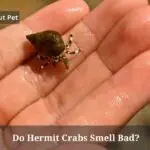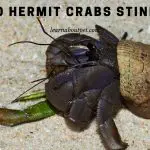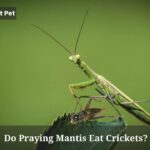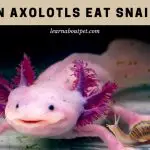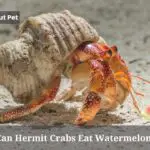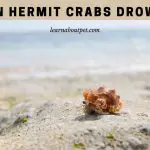Pest is a problem for every garden owner. Stink bugs are one of the pests with an awful smell that are often found near flowers or vegetable gardens. Luckily, we can see praying mantis around the garden to solve the pest problem.
Praying mantis is known as a deadly killer of pests.
Do praying mantis eat stink bugs? Praying mantis will hunt down any bugs they can get with their little arms. Stink bugs are the perfect size for praying mantis. Although stink bugs emit liquid with a foul smell, praying mantis has no problem and tuck into them.
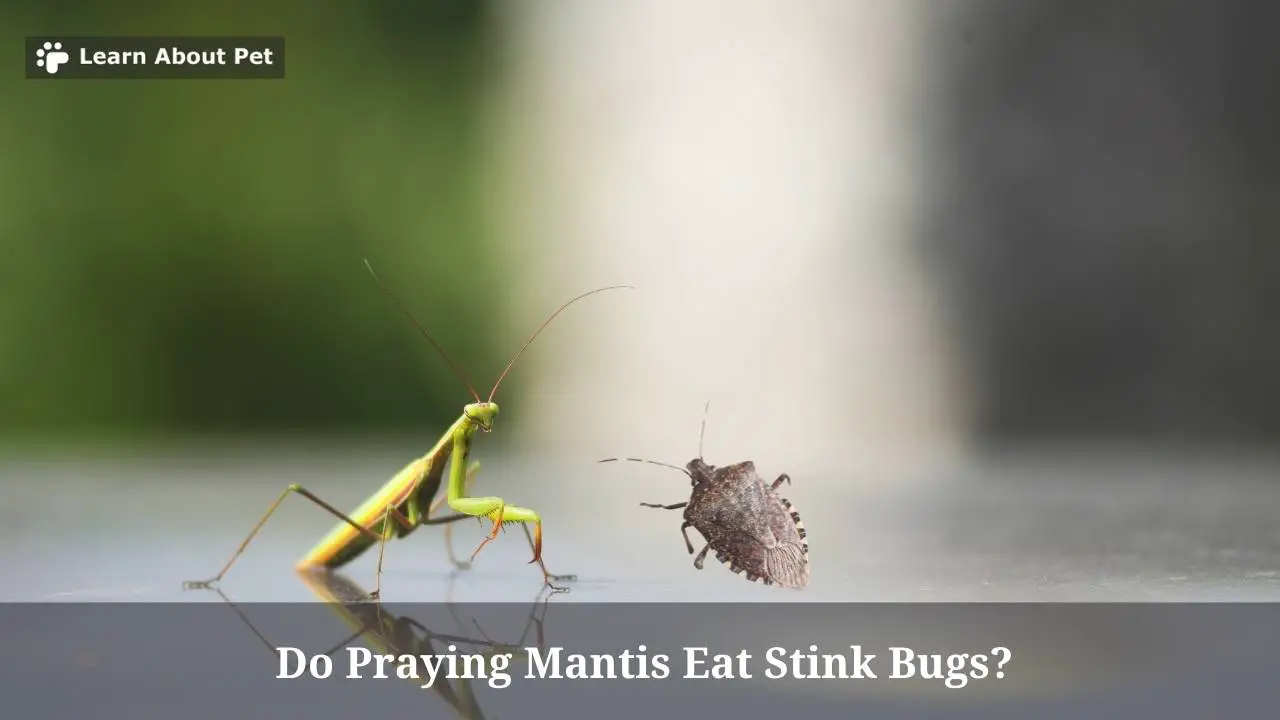
Knowing praying mantis can hunt down pests like stink bugs can be an advantage for you. Let’s read this article to the end.
What Bugs Do Praying Mantis Eat?
Praying mantis can eat any bugs they can reach with their arms. When young, the mantis will eat soft-bodied insects such as mosquitoes, leafhoppers, caterpillars, and aphids.
While an adult, the mantis will eat larger insects, such as crickets, grasshoppers, beetles, stink bugs, and other pest insects. If you have a gardener with pest problems, praying mantis will be great pets for you.
Praying mantis can hunt small birds or other predators such as spiders. If their hands can reach their prey, the mantis can tuck on them. Simply mantis can eat anything they can catch.
Do Praying Mantis Eat Stink Bugs?
Yes, mantis does eat stink bugs. All parts of the body of the stink bugs will eat from the head, body, the wings without residue. Although stink bugs smell awful and every human being doesn’t like the smell, the mantis has no problem eating it all up.
The sharp hands of the mantis are like serrations that can grasp their prey so they don’t run away from their grasp. Praying mantis ate a stink bug starts from severing its head, moving on to its body and wings. Mantis will eat any bugs they eat without leaving any residue.
Do Praying Mantis Eat Brown Stink Bugs?
Praying mantis can eat brown marmorated stink bugs. The bug size is quite small when compared to the mantis’ arms. Mantis will find it easy to take brown stink bugs in the wild and become their prey. Mantis can do several ways to catch stink bugs. They can be camouflaged with the colors of the surrounding vegetation, or sway like leaves in the wind to attract the bug’s attention.
Brown stink bugs will be a problem in the vegetable garden because they are pests. The presence of praying mantis around the garden will make them beneficial insects because they hunt for pests until nothing is left.
Are Stink Bugs Safe For Praying Mantis To Eat?
Praying mantis never differentiates what they eat. When a praying mantis eats stink bugs with a bad smell, it doesn’t mean the bugs will be bad for the praying mantis’s health.
They eat stink bugs without any problems and can form their primary diet. The praying mantis has an energetic appetite. They can find a lot of prey in a day even though their bodies look small.
Will Praying Mantis Eat Stink Bugs?
If you have a pet praying mantis, you can give stink bugs as their food. But you don’t need to bring it from the garden to the mantis cage because you won’t be able to stand the liquid smell that stink bugs give off.
Keep the cage of the mantis outside or leave the mantis out for a while, throwing the stink bugs near the mantis to get them to hold on.
Praying mantis will eat it from head to toe without residue. All kinds of stink bugs will become food for the mantis. If you can stand the smell of stink bugs then it doesn’t matter if you pick up a bug or two to hand it over to your pet.
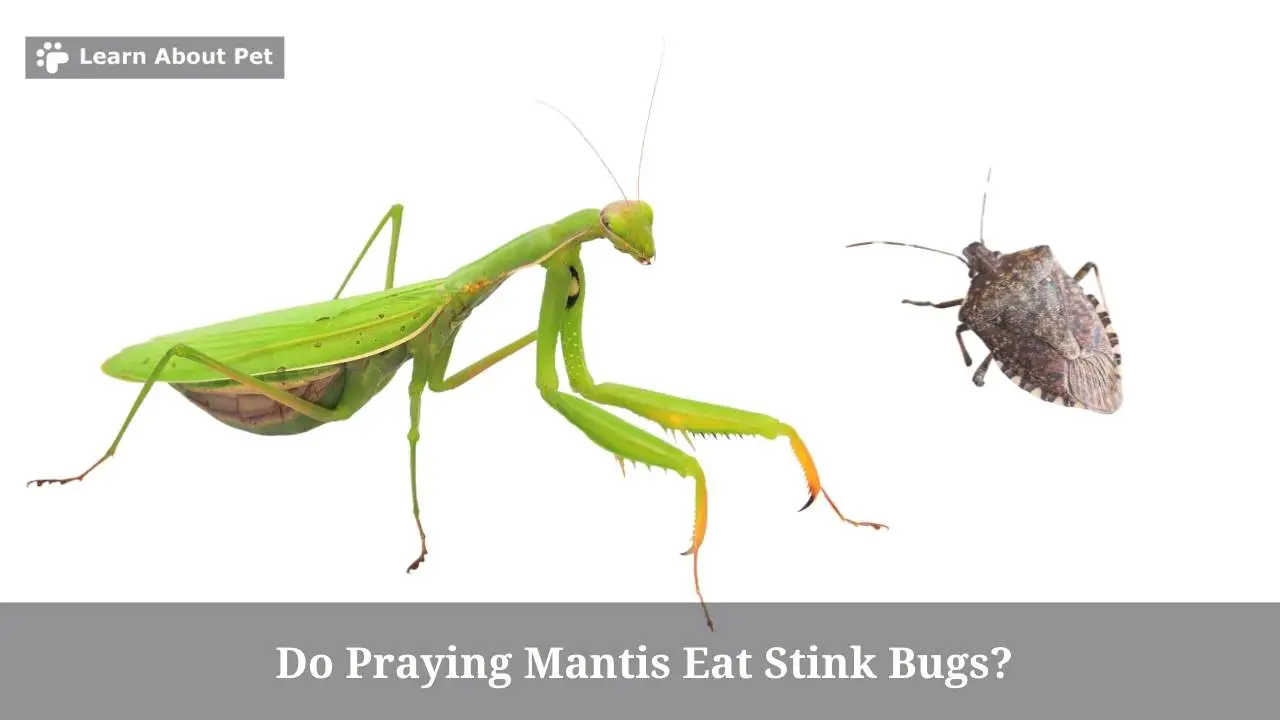
Do Mantis Eat Stink Bugs?
Yes, praying mantis will eat it happily. Although stink bugs are annoying bugs for us because of their pungent smell, praying mantis can be a much more annoying insect without any problems.
Praying mantis can be beneficial insects for our garden because they can hunt down stink bugs that can damage the garden.
Stink bugs are an invasive species in the garden. You can release some praying mantis and leave them to hunt down the stink bugs. Look for some mantis after a while until you feel the time to eat the stink bugs is enough.
Do Praying Mantis Eat Good Bugs?
Praying mantis can eat as many bugs as they can catch. Their long, sharp arms make it easy to grasp their prey and not let them run. Birds or other predators can be targets for the large praying mantis. Not only pests, but mantis can also look for good bugs. The table below is some of the bugs that mantis is targeting.
| Bugs or insects that mantis eat | Explanation |
| Ladybugs | Mantis eat ladybugs although other predatory insects do not eat ladybugs because they are toxic. |
| Ticks | Mantis in captivity can eat ticks, but this is not a natural food for them. |
| Aphids | Aphids will help mantis to develop, age, and move faster. |
| Butterflies | Although the butterflies do not disturb the garden, the mantis will still prey on the butterflies that are perching on the flowers. |
| Honey bees | Honey bees flying around the flower make easy prey for the mantis. |
Does A Praying Mantis Eat Stink Bugs?
Praying mantis does eat stink bugs. They eat without any disturbance even though stink bugs have a smell that humans don’t like. They eat without leftovers to the point of licking their arms if any stink bugs are left on them.
What Insects Prey On Stink Bugs?
The praying mantis is not the only insect that eats stink bugs. Many others make stink bugs prey. Green lacewings, big-eyed bugs, soldier beetles, damsel bugs, and ground beetles look for stink bugs to become their food.
Stink bugs have a shield-shaped body that is easily recognized by predators. These bugs suck sap that can kill the plant in a garden. Let the stink bugs deal with predators such as beetles, mantis, or lacewings to keep your garden growing well.
Do praying mantis eat stink bugs? Mantis doesn’t need a hard way to hunt down stink bugs. They will camouflage like the color of the leaves around their environment. When stink bugs are near the mantis, the mantis uses its arms to grasp them and starts eating them from the head.
Will A Praying Mantis Eat A Stink Bug?
Both wild and pet praying mantis will be happy to eat stink bugs. They can handle stink bugs easily because of the small size of these bugs. Mantis can hunt many stink bugs because mantis has an energetic appetite.
Praying mantis not only hunts stink bugs or pests but many good bugs that become their target. Cannibalism often occurs between fellow mantis, when female mantis will die with male mantis by decapitating their head and start to eat it.
Do praying mantises eat stink bugs? You can put pet mantis around the garden if you see a lot of stink bugs that perch on your plants. Stink bugs can kill a lot of plants if they have invested. Having lots of mantis will be beneficial insects for your garden.
Final Verdict – Do Praying Mantis Eat Stink Bugs
Even though garden owners know stink bugs are mantis food, they don’t want to take stink bugs directly into the house.
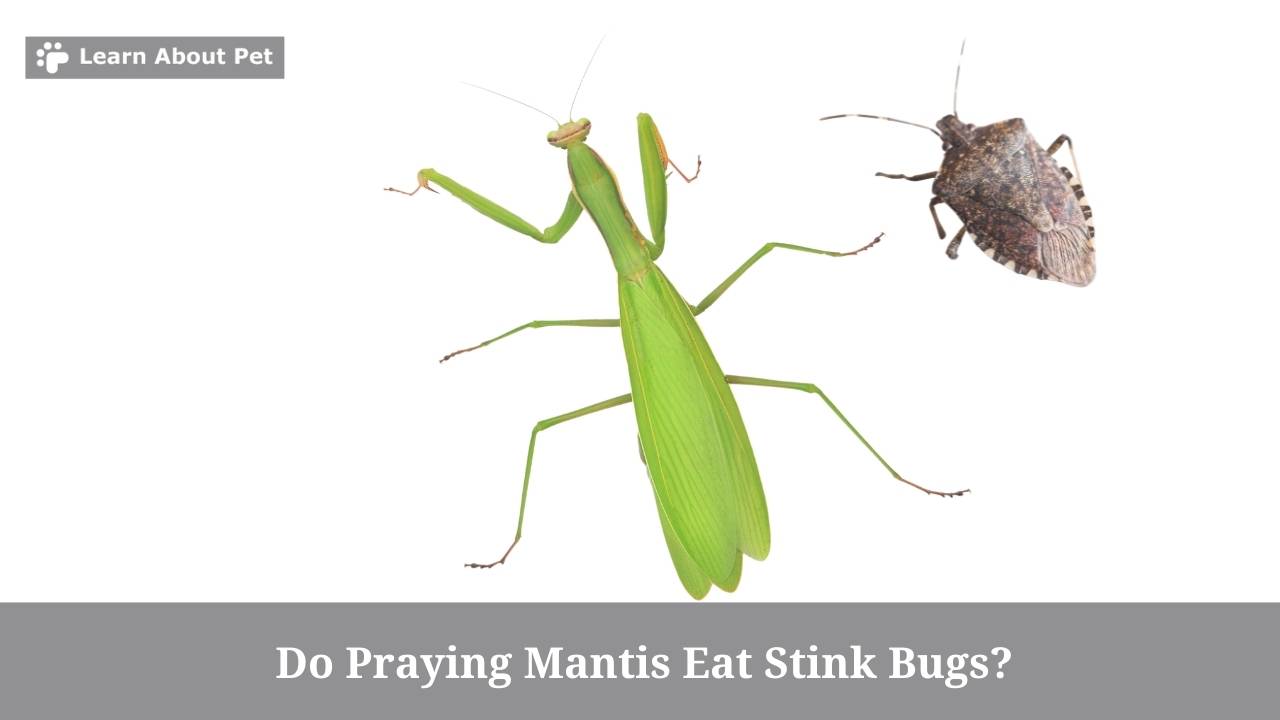
Garden owners prefer to release mantis into the garden and let them hunt stink bugs. Mantis can be an option for cleaning pest populations on a farm or yard.
The small size of stink bugs is not a problem for mantis hunting them. The mantis will grasp the bug’s body and start eating it from its head. Mantis will go from head to toe without residue.
As a pet lover, make sure to learn about pet more and give your pet mantis a good and comfortable life!

Welcome to Learn About Pet. My name is Rajkumar Ravichandran and I love all pets, travel, and amazing food. I write about my passion and personal experience caring for multiple pets in this blog! ❤️
Post Disclaimer
DISCLAIMER: THIS BLOG OR WEBSITE, "Learn About Pet", DOES NOT PROVIDE YOU WITH MEDICAL ADVICE AND IS NOT A SUBSTITUTE FOR MEDICAL ADVICE. ALWAYS GET IN TOUCH WITH YOUR PERSONAL VETERINARIAN AND USE INFORMATION HERE AS GENERAL ADVICE.
The information, including but not limited to, text, graphics, images and other material contained on this website are for informational purposes only. No material on this site is intended to be a substitute for professional veterinary advice, food recommendation, diagnosis, or treatment. Always seek the advice of your veterinarian or other qualified health care provider with any questions you may have regarding a medical condition or for pet food related questions.
